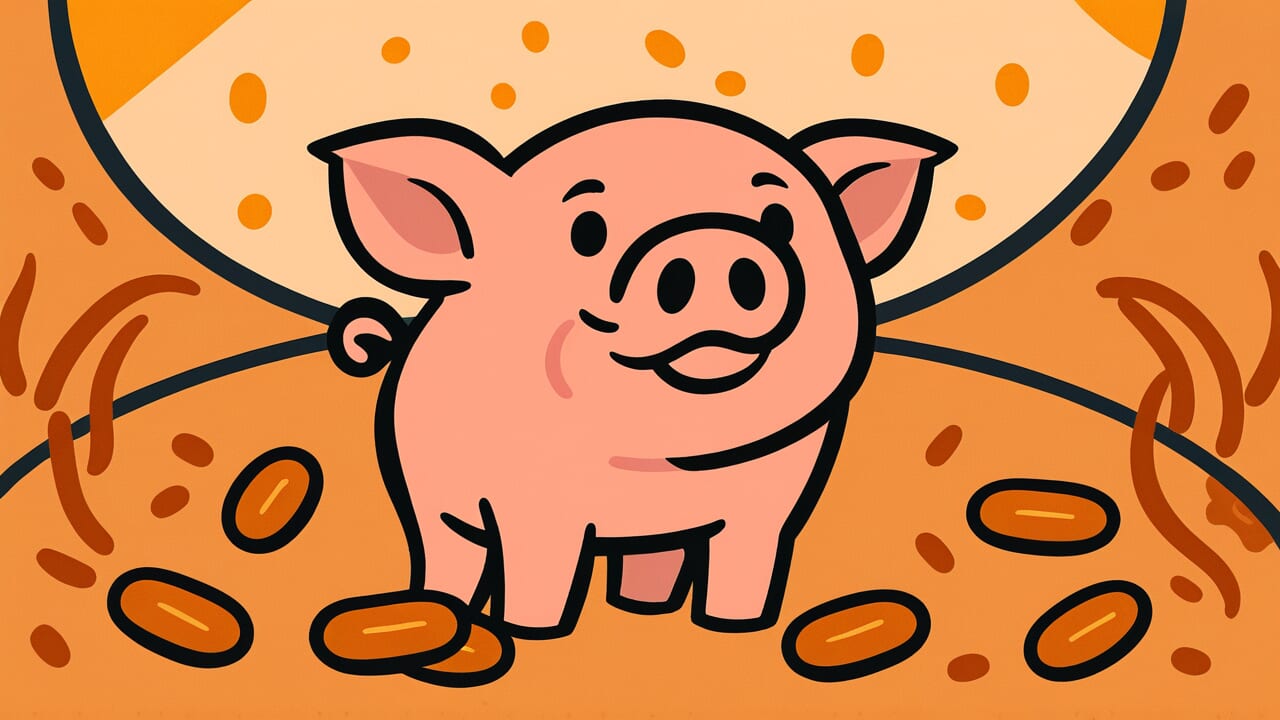How to Read “I need to carefully examine this Japanese proverb: 豚肩、豆を掩わず”
Buta kata, mame wo ōwazu
Meaning of “I need to carefully examine this Japanese proverb: 豚肩、豆を掩わず”
“I need to carefully examine this Japanese proverb: 豚肩、豆を掩わず” describes extreme frugality or severe stinginess. It criticizes the attitude of being so thrifty that you skimp even on things you should use.
This proverb points out situations where frugality goes beyond being a virtue and becomes unreasonable. Moderate saving is wise, but excessive saving can lower your quality of life or damage relationships with others.
People use this expression with a touch of irony when someone takes thrift too far.
Even today, many people lose money by refusing necessary investments. Others damage relationships through excessive penny-pinching.
This proverb makes us think about the boundary between stinginess and sensible saving.
Origin and Etymology
No clear written records explain the origin of this proverb. However, we can make interesting observations from how the words are structured.
“Buta kata” (pork shoulder) refers to shoulder meat from a pig. Pork has long been a valuable protein source for common people. Among pork cuts, shoulder meat was considered relatively inexpensive.
“Mame” (beans) represents an even smaller and cheaper food item.
“Ōwazu” means “not covering” or “not hiding.” Here it likely means “not sparing” or “not holding back.”
The leading theory suggests the proverb describes extreme frugality—being so thrifty that you try to hide even pork shoulder with beans.
Another interpretation sees it as trying to substitute expensive pork with cheap beans. Either way, the proverb satirically expresses excessive saving down to the smallest details.
This expression probably emerged during the Edo period among common people. It served as both wisdom about food economy and a warning against excessive stinginess.
Usage Examples
- He follows “I need to carefully examine this Japanese proverb: 豚肩、豆を掩わず” so strictly that he refuses to use air conditioning even in summer to save electricity, and ended up getting sick
- That company’s “I need to carefully examine this Japanese proverb: 豚肩、豆を掩わず” management policy cut even necessary equipment investments, which actually reduced productivity
Universal Wisdom
“I need to carefully examine this Japanese proverb: 豚肩、豆を掩わず” has been passed down because it addresses universal human psychology—fear and attachment.
At the root of frugality lies anxiety about the future. We don’t know what tomorrow brings, so we must protect what we have today.
This psychology represents a fundamental human fear across all eras. But when this fear grows too strong, we start withholding even what we need right now.
As a result, we damage the very quality of life and relationships we’re trying to protect.
What’s interesting is that this proverb doesn’t simply condemn stinginess. It captures the subtle nuances of human psychology.
Everyone has some tendency to hoard things out of future anxiety. That feeling is understandable, but taking it too far defeats the purpose.
Our ancestors understood this delicate balance.
This proverb also connects deeply with the Eastern philosophy of “knowing what is enough.” True abundance isn’t about accumulating material things.
It’s about having the peace of mind to use what you need when you need it.
When AI Hears This
The situation where pork shoulder cannot completely hide beans highlights a core problem in information theory. Information has a property of being “impossible to completely erase.”
In Shannon’s information theory, information quantity is measured in bits. The key point is that “information always leaves physical traces.”
Even if you cover beans with pork shoulder, the weight doesn’t change. The shape changes subtly too. The very act of hiding creates new information.
Information theory calls this the “conservation of information.” Even encrypted data doesn’t look like meaningless noise. It always leaves traces that “something is hidden.”
More fascinating is that the pork shoulder itself becomes an information channel. For example, with smartphone encrypted communications, you can infer “who is communicating with whom” from communication volume and timing patterns.
This is called the metadata problem. The size and shape of the pork shoulder used to hide beans actually conveys the information that “beans are there.”
This resembles quantum mechanics’ observation problem. Any act of hiding necessarily changes the surrounding state, and that change itself becomes an observable signal.
Complete information concealment is theoretically impossible.
Lessons for Today
This proverb teaches modern people about “the courage to spend where you should spend.”
We live in uncertain times. That makes saving important, but when saving becomes the goal itself, we miss the point.
Health, education, relationships, self-investment—things that create long-term value need appropriate investment of money and time.
In modern society, this lesson applies not just to money but to how we use time and energy. Are you trying to save everything and losing focus on what truly matters?
Balanced resource allocation leads to a rich life.
What truly has value in your life? Develop the eye to discern this and invest generously where necessary.
This proverb asks us about that sense of balance. Frugality and investment. Restraint and enjoyment.
Recognizing the boundary between these is the wisdom for living smartly in modern times.



Comments